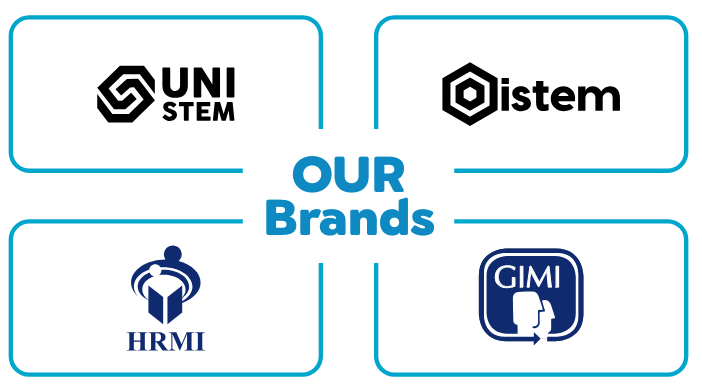
DIPLOMA IN SUPPLY CHAIN MANAGEMENT AND LOGISTICS
Why Parents and Students should consider this Pathway? Logistics and Supply Chain Management is becoming increasingly significant worldwide, with numerous job openings emerging in this sector, particularly in the Middle East. This expertise enhances employment prospects in any developed country and serves as a valuable qualification for those considering migration.
This diploma provides a thorough education, equipping newcomers with the knowledge and skills necessary to succeed in a career in supply chain and logistics. Additionally, it offers an accelerated path for motivated and ambitious students to earn a degree in a substantially shorter period.
What is Supply Chain Management (SCM)? Supply Chain Management (SCM) involves overseeing the flow of goods and services from raw materials to final products. It encompasses planning, sourcing, production, logistics, and information management to ensure efficient and cost-effective delivery. SCM aims to optimize processes, reduce costs, and enhance customer satisfaction.
Is SCM an important function in an organisation?
Supply Chain Management (SCM) is a crucial function in an organization due to its significant impact on operational efficiency, cost reduction, and customer satisfaction. Effective SCM ensures timely delivery of products, optimizes resource use, minimizes waste, and enhances the organization’s ability to respond to market changes and demands.
Is SCM considered a skills migration category?
Supply Chain Management (SCM) is considered a skills migration category. Professionals in SCM are in demand globally due to the need for efficient logistics and supply chain operations across industries. Countries often seek skilled SCM experts to enhance their economic competitiveness, optimize trade, and improve overall business efficiency.
What does a Diploma in SCM cover?
A Diploma in Supply Chain Management covers fundamental principles of logistics, procurement, inventory management, warehousing, transportation, and distribution. It includes supply chain strategy, operations, and technology, emphasizing efficiency, cost control, and customer satisfaction.
Employment prospects with a Diploma in SCM?
The Diploma prepares students to effectively embark on a supply chain related job and perform efficiently in a short period of time.
It is an perfect qualification (a) to seek employment in well paid career (b) to satisfy the requirements for overseas employment (c) to fulfill the requirements for career advancement (d) to move into a SCM job from a different field (e) to enable retired military officers to be employed in the corporate sector.
Course Content
1. Introduction to Logistics and Supply Chain Management
– Definitions and scope of logistics and supply chain management
– The role of logistics in the economy and organization
– Supply chain management principles
– Key logistics and supply chain processes
2. Supply Chain Operations and Planning
– Demand forecasting and planning
– Inventory management and control
– Production planning and scheduling
– Capacity planning and management
– Supply chain design and network optimization
3. Transportation and Distribution Management
– Modes of transportation and their characteristics
– Transportation planning and management- Distribution channels and strategies
– Warehousing and storage management
– Distribution network design
4. Procurement and Supplier Management
– Strategic sourcing and procurement processes
– Supplier selection and evaluation
– Supplier relationship management
– Contract management and negotiation
– Ethical and sustainable procurement practices
5. Inventory Management
– Types of inventory and their roles
– Inventory control techniques
– Economic order quantity (EOQ) model
– Inventory optimization strategies
– Technology in inventory management
6: Information Technology in Supply Chain Management
– Role of IT in supply chain management
– Supply chain information systems (SCIS)
– Enterprise resource planning (ERP) systems
– E-commerce and its impact on supply chains
– Emerging technologies in supply chain management
7. Global Supply Chain Management
– Globalization and its impact on supply chains
– International trade and regulations
– Global sourcing and logistics
– Risk management in global supply chains
– Cultural considerations in global supply chain management
8. Sustainable Supply Chain Management
– Sustainability concepts and principles
– Environmental impact of logistics and supply chains
– Green logistics practices
– Corporate social responsibility (CSR) in supply chain management
– Measuring and reporting sustainability performance
9. Supply Chain Strategy and Performance
– Developing supply chain strategies
– Aligning supply chain and business strategies
– Performance measurement and management
– Key performance indicators (KPIs) in supply chain management
– Continuous improvement in supply chains
10. Research Project or Work-Based Learning
– Introduction to research methodologies
– Identifying and formulating a research question or project
– Data collection and analysis techniques
– Presenting research findings – Reflective practice and learning from experience
Entry Requirements
– GCE (A/L) at least 2 passes (any stream) with English & Maths at O/Ls OR
– GCE (O/L) with at least 2 years work experience for Adult Candidates OR
– Certificate in Logistics / Supply Chain Managment awarded by a recognised Institution OR
– Any other Qualification deemed equivalent to the above
Schedule: Sunday Batch: 8.45 am to 1.30 pm
Duration: 12 months
COMMENCEMENT: 29th June 2025
Medium: Mixed (English/Sinhala)
Course Registration Fee: Rs. 20,000 (Early Bird Offer: Register before 20th June: Registration Fee: Rs. 10,000 Only)
Course Fee: Rs. 15,000 x 12 installments = Rs. 180,000
Social Security Contribution Levy (SSCL) of 2.5 % would be charged on all above fees.
Please call for more details: (+94) 117 181 111 / 77 220 4101 / 71 272 4425




